Wales' schools face staff cuts to balance books - survey
- Published
- comments
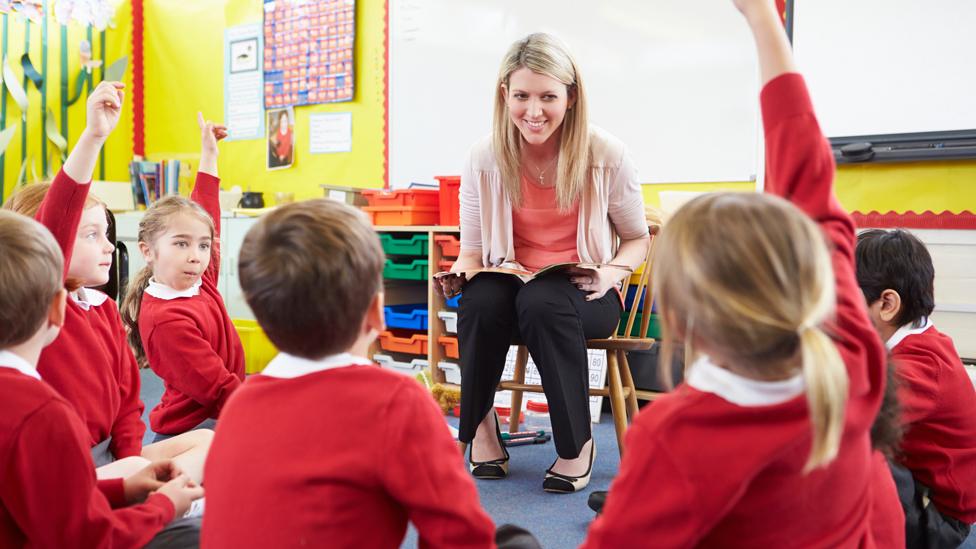
There could be fewer teachers in schools due to pressures on budgets, according to a head teachers' union
Some head teachers are warning that pressures on school budgets could mean staff cuts across Wales.
The findings come from a survey of 670 of around 1,500 schools by head teachers' union, NAHT Cymru.
Director Laura Doel said there was "nothing left to cut" after 10 years of austerity and under-funding.
The Welsh government said it recognised inflation and energy costs were causing pressure and that councils and schools were looking to use cash reserves.
"The significant levels of funding needed requires the UK government to act urgently," it said.
The UK government has previously told BBC Wales that the responsibility for funding public services was "largely devolved across the UK, but we have provided the Welsh government with a record £18 billion per year".
Overall, there were 11,000 respondents to NAHT's snapshot survey in the UK in which 54% of respondents said they would not be able to balance their budgets unless they made spending cuts.
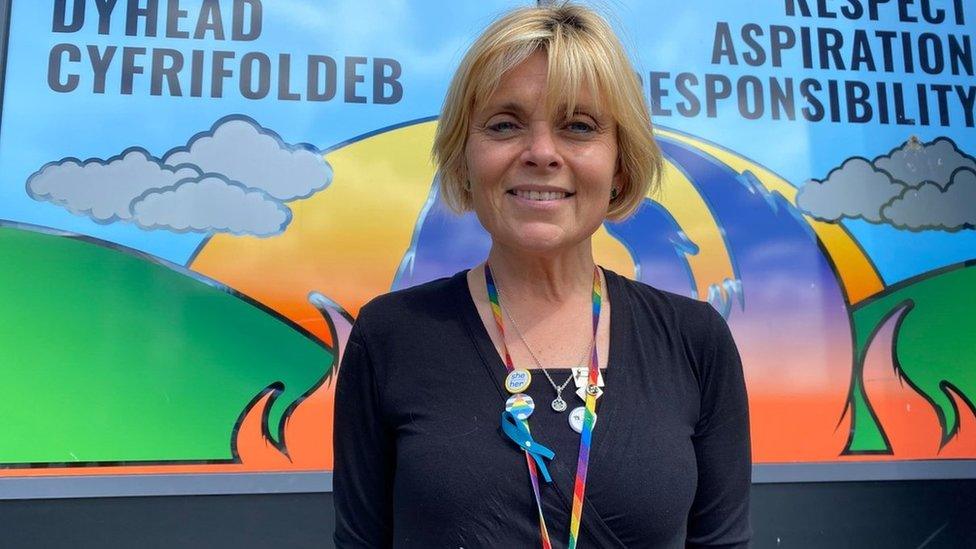
Head teacher Jennifer Ford said school leaders were "having to think very, very carefully"
NAHT Cymru found that 61% of those who responded in Wales said they were looking at reducing the number of teachers or hours that staff work.
Other actions being considered were:
Cutting maintenance and investment in school equipment
Cutting spending on targeted interventions for pupils who need additional support
Reducing energy consumption
Using school reserves to help balance the books
School reserves, external at the end of the last financial year stood at £301m, up by £121m on previous figures mainly because schools spent less due to closures and they received extra funds to deal with Covid.
But Ms Doel said the sum accounted for five months of staff wages, and money set aside for school improvements and repairs that were not undertaken during the pandemic.
"When we say £300m reserves, I would take that with a pinch of salt," she told BBC Radio Wales Breakfast.
The Welsh government said it would support local authorities and schools who "were already discussing how to deploy their reserves".
Speaking on Wales Today on Tuesday, Ms Doel said all spending, including free school meals should be on the table.
"Everything needs to be on the table when we've got schools considering making redundancies," she said.
'Using every penny'
Last week, BBC Wales reported that pupils in Powys could be taught online one day a week to help schools balance the books.
Wearing coats in classrooms and leaving jobs unfilled were other cost saving ideas sent to head teachers in a briefing document.
Jackie Parker, an executive school leader in Powys, said not all schools had a reserve.
"The last thing you want to lose is your staff so you try to look at everything before you look at losing staff," she said.
Jennifer Ford, head teacher of Treorchy Comprehensive School in Rhondda Cynon Taf, said all school leaders were "having to think very, very carefully".
She said she was "using every penny" available and reserves would dwindle, adding: "That is the honest truth - I'm very concerned."
Heledd Fychan, Plaid Cymru's spokeswoman for children and young people, said: "To say that schools are sitting on money, and that they have plenty going spare, is not the reality on the ground."
Ms Fychan, a member of the Senedd (MS) for South Wales Central, said schools were making "really difficult decisions" such as stopping school trips and extra-curricula activities which benefitted children who may not otherwise have such experiences because parents could not afford them.
The Welsh government said free school meals were essential to its educational programme as they delivered educational benefits as well as tackling child hunger and poverty.
They were, it said, integral to tackling the cost of living crisis.
A spokesman said: "We remain fully committed to ensuring every penny we spend reforms and improves our education system to narrow educational inequality and ensure standards rise.
"But we are under no illusions of the immense financial challenges we face, and continue to call on the chancellor to turn away from austerity and increase funding for public services."

CHALLENGING MISCONCEPTIONS: Life in Britain’s biggest special school
BORN DEAF, RAISED HEARING: What it means to live in two different worlds

- Published17 November 2022

- Published1 November 2022
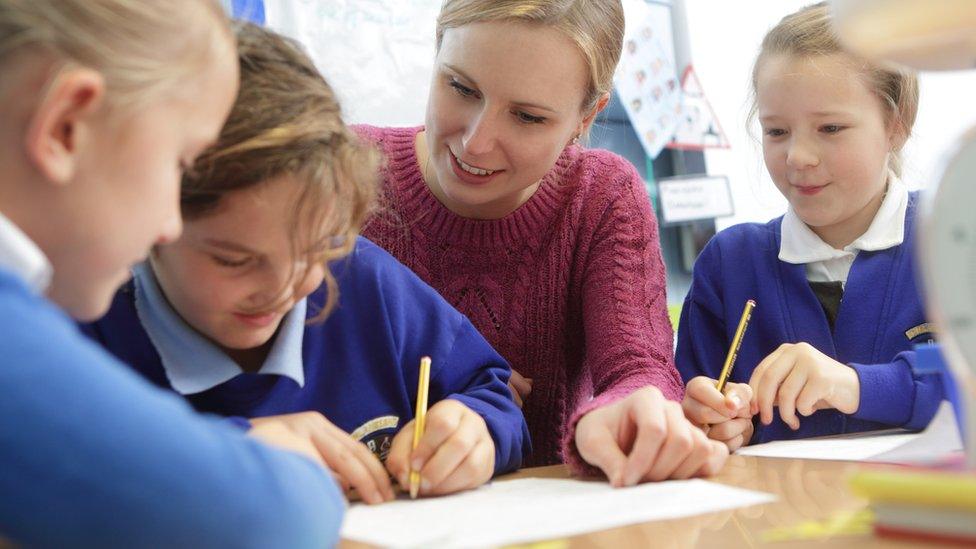
- Published28 October 2022
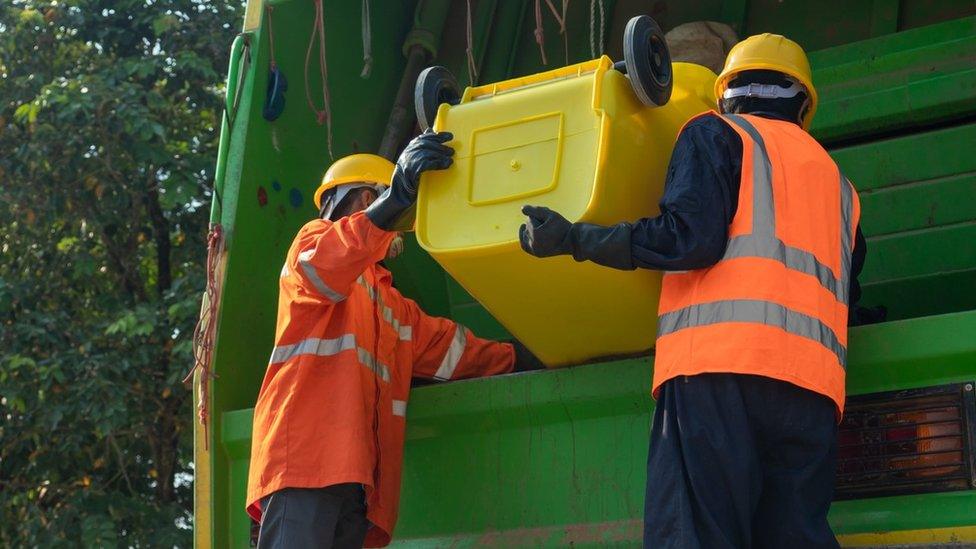
- Published25 September 2022
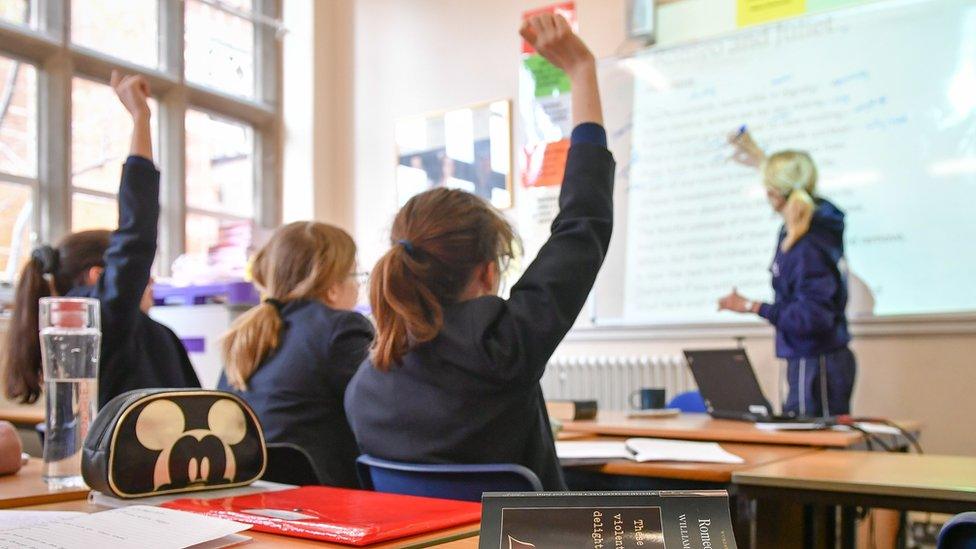
- Published18 July 2022
